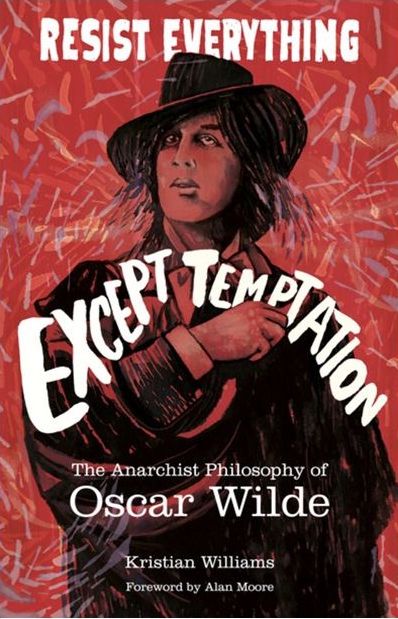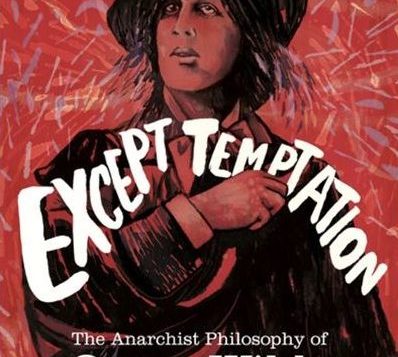 RESIST EVERYTHING EXCEPT TEMPTATION
RESIST EVERYTHING EXCEPT TEMPTATION
The Anarchist Philosophy of Oscar Wilde
by Kristian Williams
AK Press. 283 pages, $18.
RESIST EVERYTHING Except Temptation is a careful consideration of Oscar Wilde’s philosophical underpinnings. Through a close examination of his writings and political affiliations, Kristian Williams discovers a deep affinity for anarchism. To be sure, Wilde is better known for his witticisms and his reputation as a dandy than as a profound thinker. Indeed, the title of this book comes from his famous, frivolous quip: “I can resist everything except temptation.” But Williams makes the case that there are serious anarchist sympathies behind the humorous lines.
One way Williams does this is by defining anarchism in a variety of ways, including a radical individualism and a tolerance for ambiguity, characteristics of Wilde’s work in general. He is interested in the literary and æsthetic qualities of anarchism more than its political dimensions. Wilde’s first play, Vera; or, The Nihilists, is about a group of terrorists modeled after Vera Zasulich, a Russian revolutionary with anarchist sympathies who attempted to assassinate a Russian general in 1878. Williams concedes that “Vera is a bad play in nearly every respect,” mainly for the “political incoherence” of the group to which Vera belongs: “[While] nominally nihilists, they are also called communists, refer to themselves as patriots, talk eagerly of democracy, aim to establish a republic, and appeal to God in their rhetoric.”
However, Williams suggests that this “ambiguity” might have been intentional,







